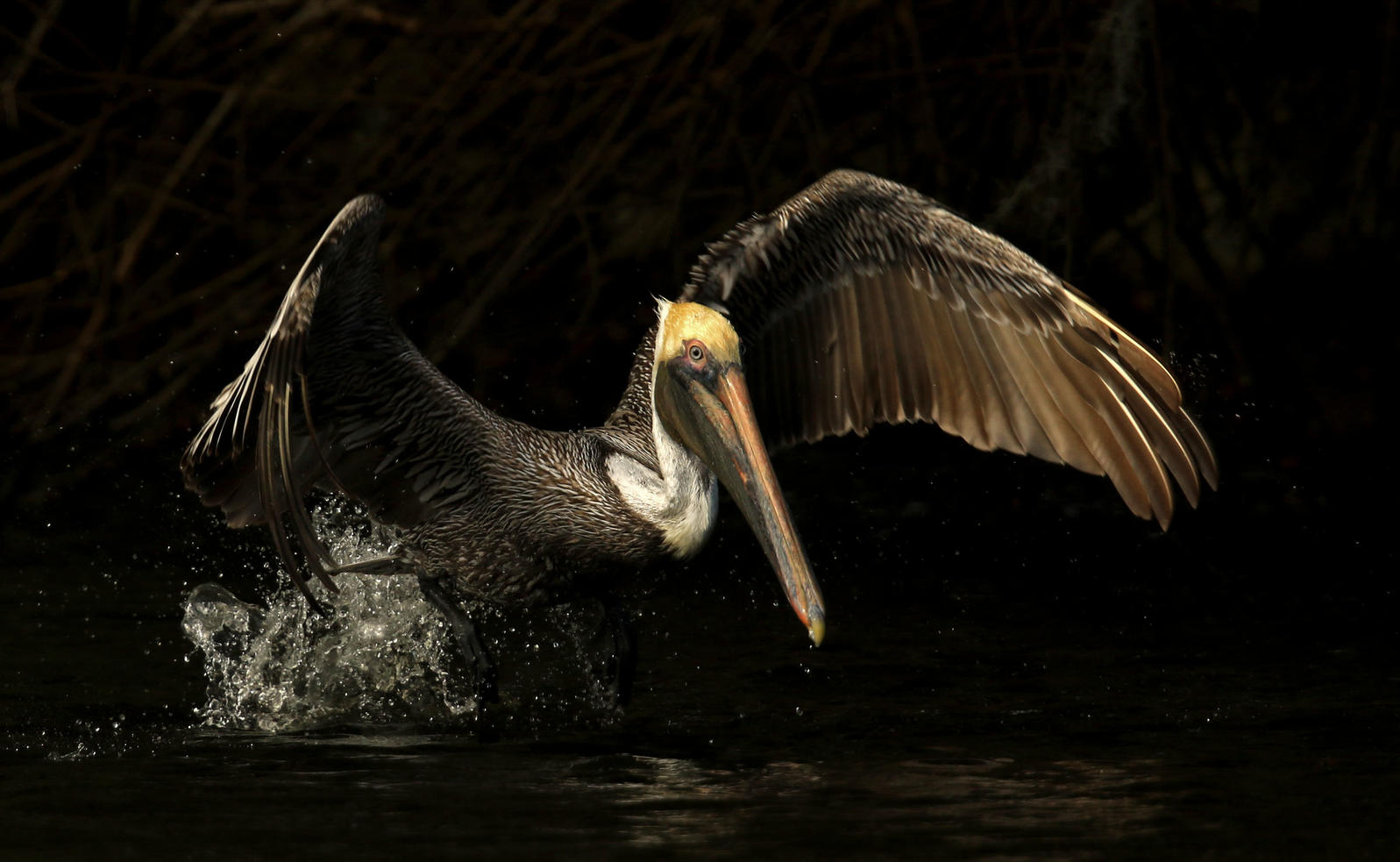
Brown Pelican. Photo: Teri Franzen/Audubon Photography Awards
California leads 16 other states, the District of Columbia and the City of New York in federal lawsuit.
September 26, 2019 - SACRAMENTO, Calif. – The National Audubon Society today praised an announcement today by California Attorney General Xavier Becerra that California is leading 16 other states, the District of Columbia, and the City of New York in filing a lawsuit challenging the Trump Administration’s rollback of the federal Endangered Species Act. Becerra, Massachusetts Attorney General Maura Healey and Maryland Attorney General Brian Frosh filed the challenge today in U.S. District Court for the Northern District of California.
“With this lawsuit, California is demonstrating once again that it can lead the fight to protect our environment and vulnerable wildlife against policies that are short-sighted, unsustainable and ignore science and common sense.
“We know that the Endangered Species Act works. California is home to birds such as the Brown Pelican, California Condor, and Bald Eagle, which have been brought back from the brink of extinction because of this legislation. Our state has the highest biodiversity in the country, but that also means that we also have the most to lose. As climate change and habitat destruction take their toll on our most vulnerable species, this weakening of federal protections comes at the worst possible time.
"With this lawsuit, Attorney General Becerra is making sure that California is stepping in where the federal government refuses, but that’s only a partial solution. We also must ensure that our state laws have the needed strength and flexibility to protect our most vulnerable species from rollbacks by the administration," said Sarah Rose, executive director of Audubon California.
Specifically, the lawsuit challenges attempts by the U.S. Fish and Wildlife Service and the National Marine Fisheries Service to inject economic considerations into the Endangered Species Act’s science-based analyses, making much more difficult the process of listing a species as threatened or designating critical habitat for that species, limiting public input and transferring responsibility for safeguarding imperiled species and habitat onto the states, along with all associated expenses.
Enacted under the Nixon Administration in 1973, the Endangered Species Act has been a powerful tool for protecting wildlife. Protections provided by the Act have succeeded in preventing the extinction of 99 percent of the species listed and have benefitted many others that depend on the landscapes it shields.
Also in September 2018, Attorney General Becerra filed a lawsuit challenging the Trump Administration’s decision to withdraw protections for America’s migratory birds, by rolling back provisions of the Migratory Bird Treaty Act (MBTA). Just two months later, the California Department of Justice and the California Department of Fish and Wildlife released a legal advisory regarding the MBTA, affirming that despite any federal reinterpretation of the MBTA by the federal government, California would continue to enforce robust protections for migratory birds.
About Audubon
The National Audubon Society protects birds and the places they need, today and tomorrow. Audubon works throughout the Americas using science, advocacy, education, and on-the-ground conservation. State programs, nature centers, chapters, and partners give Audubon an unparalleled wingspan that reaches millions of people each year to inform, inspire, and unite diverse communities in conservation action. A nonprofit conservation organization since 1905, Audubon believes in a world in which people and wildlife thrive. Learn more at www.audubon.org and on Facebook, Twitter and Instagram @audubonsociety.
Source: Audubon








